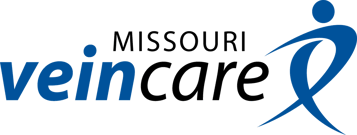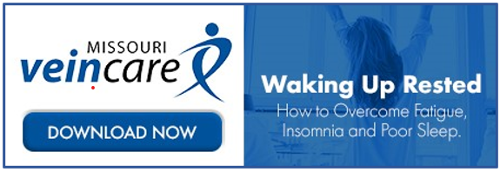Feeling Restless? 10 Tips for a Better Night’s Sleep
If you're struggling to get a good night's sleep, you might be wondering why a vein specialist is talking about it. The simple reason is that I see it every single day in my practice. A surprising number of my patients—I would say about three-quarters—report having some sleep disturbance. Often, it's related to their veins, but it can certainly be due to other causes as well.
Dealing with sleep problems is a common part of my conversations with patients. Think for a moment about all the factors that can interfere with rest. There’s stress from work, relationships, and daily responsibilities, not to mention unexpected life challenges. When you consider all these things, it’s no wonder quality sleep can sometimes be hard to find. When it comes to underlying issues that affect our sleep, vein conditions are a frequent and often overlooked cause.
Key Takeaways
- A high percentage of people with a vein condition, such as vein reflux, also experience poor sleep quality, which often improves significantly after treatment.
- Sleep disturbances can be broken down into three types: trouble falling asleep, trouble staying asleep, and waking up feeling unrested.
- Lifestyle habits play a huge role. Things like consuming alcohol or caffeine too late in the day, eating a large protein-heavy meal at night, and using screens before bed can disrupt your sleep cycle.
- Creating a calming evening routine, such as taking a warm bath, journaling, or practicing gratitude, can signal to your brain that it's time to wind down.
Understanding Your Sleep Problem
When I talk with patients, the first step is to figure out the pattern of their sleep problem. Is it that you can't fall asleep, you can't stay asleep, or you sleep through the night but still wake up feeling tired? These are three separate patterns, and understanding which one you experience can help point toward the cause.
A very common cause of sleep disturbances that we see is vein reflux. This is a condition where stagnant blood in your legs allows inflammation to build up throughout your body. This inflammation can interfere with the sleep center in your brain. It also triggers leg symptoms like cramps, aching, and restless legs that prevent you from getting restful sleep. For about 75% of people with a vein condition, their sleep improves dramatically after treatment.
Another very common problem is sleep apnea. The incidence of sleep apnea is increasing, and it doesn't just affect people based on their body weight. While that is a risk factor, other factors may be leading people with a normal body weight to develop it. You can't diagnose sleep apnea yourself because you're asleep when it happens. It has to be diagnosed by someone who observes you, or through a home oxygen test from your primary care provider.
10 Tips for Better Sleep
Once we've considered underlying medical causes, we can look at habits. Making a few changes to your daily and nightly routines can make a world of difference.
1. Avoid Long Naps
A short 10 to 15-minute power nap in the early afternoon can provide a refreshing boost if you need it to feel more alert and have the time. But be careful not to nap too long, as this can make it difficult to fall asleep in the evening or sleep soundly through the night! The longer the nap, the more your body will postpone its need for sleep later. A long nap resets your mental clock, and your body then thinks it can go another 12 or 16 hours before sleeping again.
2. Limit Alcohol, Caffeine, and Nicotine
A recent U.S. study on the evening use of alcohol, caffeine, and nicotine found that drinking and/or smoking within four hours of one’s bedtime increased sleep fragmentation. Research has also shown that people who consistently drink large amounts of alcohol before going to bed generally need more time to fall asleep at night. Alcohol is a depressant and will help people calm down, as it has an anti-anxiety effect. However, it is followed by a surge of mental activity (even if you are asleep) and wakefulness later in the night after the depressant effect of alcohol wears off. Most people who drink prior to bed will fall asleep faster, but the overall quality of sleep is terrible.
Caffeine interferes with Stage 4 sleep and prevents deep sleep. The result is disrupted sleep quality. People may sleep through the night after caffeine, but don't sleep through the night. Upon waking, they have to get more coffee to function. Caffeine stays in your system, and the amount of caffeine that stays in your body is equal to 1/8th of what you drank 12 hours earlier. What that means is, if you drink a full cup 12 hours before bed, it's the same as if you drank 1/8th of a cup right before bedtime. If you can tolerate 1/8 of a cup before bed, that's fine...but if not, it's a challenge to change your caffeine consumption habits throughout the day.
3. Set a Consistent Sleep Schedule
Make it a goal to go to bed and get up at the same time each day. This means limiting the difference in your sleep schedule, whether it be on weeknights or weekends, to no more than one hour. Being consistent helps establish your body's sleep-wake cycle.
Yes, this is easier said than done. It can be extremely difficult to get started trying to start a good sleep cycle! So, I recommend that if you simply aren’t falling asleep after 30 minutes in bed, get up and do something else relaxing that will help promote your sleep. Consider writing in your "worry journal" (see #8 below). You may also want to try and find a somewhat difficult-to-read book (NOT one that is exciting or overly enjoyable). Once you start feeling sleepy again, go back to bed. Continue to do this until you have established a routine.
4. Use Sleep Improvement Apps
In our day and age, there is a myriad of different apps that can help promote physical and mental wellness of all kinds. This is great, but it is hard to narrow them down to what you need specifically, or know which ones are worth your time and investment! There are several apps we’ll recommend below that are beneficial to those dealing with insomnia due to medical conditions or mental distress.
Calm: Provides guided meditations, sleep stories, and more to help lower stress and promote more restful sleep.
Sleep Cycle: Provides guided meditations, sleep stories, and more to help lower stress and promote more restful sleep. Analyzes your sleep patterns and wakes you up with its intelligent alarm clock, designed to go off while you’re in your lightest sleep phase.
Reflectly: Helps with nighttime anxiety by allowing you to vent your thoughts and feelings before bed to improve your mood and practice mindfulness.
Noisli:
Provides quality ambient sounds to help you relieve anxiety and relax before going to sleep.
5. Enhance the Quality of Your Surroundings
If you are only recently struggling with getting a good night's sleep, it can be easy to underestimate the power that improving your environment can have on your sleep quality. Here are a couple of points to adopt to help improve your sleep environment:
- Keep it cool: A cool room is generally better for sleep.
- Take a warm bath: Taking a warm bath an hour or two before bed raises your body temperature. As your body cools down afterward, it signals to your brain that it's time to sleep.
- Create comfort: Clean sheets and calming scents like lavender can make your bed more inviting.
- Block out noise: A fan or a white noise machine can help create a consistent, soothing soundscape.
- Turn off screens: Screen exposure at night has a direct stimulating effect on the brain. The light tells your brain to stay awake. Try reading a book or listening to an audiobook instead.
6. Take Care of Your Diet
Eating large amounts of food before bed is almost always a bad idea, especially meals that are heavy or high in protein. Protein raises your core body temperature, and when your body temperature rises, you wake up. By contrast, as your core body temperature lowers in the evenings, it helps you go to sleep. Also, avoid foods with MSG, such as soy sauce, condiments such as ketchup, and potato chips, for example. MSG is a stimulant, called an excitotoxin, that can stick around in your system for hours. Instead, try evenly spacing nutritious meals and snacks throughout the day to fuel consistent energy. And eating too little during the day will make you want to overeat in the evening, leading to a night of tossing, turning, heartburn, gassiness, and indigestion. So, make sure you are properly spacing out your meals and avoiding too high a fat or calorie intake than your body needs.
7. Include Physical Activity in Your Daily Routine
The release of energy via physical activity or exercise is a great way to expend not only physical energy but also can help release mental stress. Physical exercise, even as light as a slow walk, can greatly help with blood flow and oxygen circulation if you do happen to suffer from any kind of vein condition. Taking walks, swimming, biking, and stretching can greatly help your overall health, as well as help contribute to a great night's sleep, but be sure not to exercise at least 2 hours before you start your sleep routine, giving your body time to relax and unwind.
8. Start a Worry Journal
Stress and anxiety are reasons why people have trouble sleeping. They are unable to stop the anxious feelings and constant worry over situations in life. It launches a mental loop where you rehash worrisome situations over and over. One way we have found that stops the loop and helps people enter a state of calm when stressors threaten sleep is to start a "worry journal." A simple notebook by your bedside is a place to record the elements of your life that are causing stress and anxiety. Write them down, but don't stop there...the most important thing with this journal is to also record action items. What steps can you take to alleviate those stressors? Even small steps are important. Even if you can't solve the problem, you can take small steps that begin the process of solving the problem. By writing them down, you can relax knowing you have better control and a course of action.
9. Practice Gratitude
The brain is unable to process two opposing thoughts simultaneously. When you notice yourself thinking negative thoughts, consciously make the choice to change those thoughts to be more positive. Find things to be grateful for, no matter how small. It's a mental exercise in being aware of your thoughts, of how you talk to yourself, and practicing shifting your thoughts to a more positive state. You can write those positive thoughts in your journal as well if you like. But make the disciplined effort to think of all the aspects of your life you are grateful for, no matter how small they may seem. Be as kind to yourself as you would to other people.
10. Schedule a Vein Screening to Determine if Vein Reflux is Present
It may surprise you to learn that chronic fatigue is a classic indicator of the presence of venous reflux. When this happens, individuals may sleep at night but constantly wake up feeling fatigued and exhausted. They feel as if they didn't get any sleep at all. After treatment, patients consistently tell us they have more energy than ever before. To them, it's life-changing.
Concerned That A Vein Condition May Be Causing Your Fatigue?
The tips provided above are all great ways to help promote a healthy night's sleep if you are struggling with restlessness for any reason. If you are experiencing trouble falling asleep at night or are being kept up at night with tossing and turning, it could very well be due to symptoms caused by an underlying vein condition. Fatigue, insomnia, and poor sleep are all very common among the patients I see, but the good news is that these symptoms can be treated in a non-invasive way. Schedule a free vein screening at one of our clinics today to assess your vein health to determine your best next steps, or download our free eBook "Waking Up Rested" for more helpful information.
Frequently Asked Questions (FAQs)
1. How exactly does a vein condition affect my sleep?
When the veins in your legs aren't working properly (a condition called venous insufficiency), blood can pool in your lower legs. This causes inflammation to build up, which can trigger symptoms like aching, cramping, and a restless feeling in your legs, making it very difficult to fall or stay asleep.
2. I wake up every night around 2 or 3 a.m. Could that be related to something I'm doing?
Waking up in the middle of the night can be caused by several factors. One common culprit is drinking alcohol in the evening. While it may help you feel sleepy at first, your brain becomes stimulated as the alcohol wears off, causing you to wake up hours later.
3. Will exercise near bedtime help me sleep better?
While daily physical activity is excellent for promoting good sleep, strenuous exercise too close to bedtime can act as a stimulant and make it harder to wind down. It’s best to finish vigorous workouts at least two hours before you plan to go to sleep. Gentle stretching or yoga, however, can be very relaxing.
4. I feel like I sleep all night, but I’m still exhausted in the morning. Why?
Waking up tired is a classic sign of poor-quality sleep. Even if you don't remember waking up, conditions like sleep apnea or the inflammation from vein reflux can prevent your body from entering the deep, restorative stages of sleep.
5. Can changing my dinner habits really make a difference?
Yes, absolutely. Eating a large meal, especially one that’s high in protein, can raise your body temperature and interfere with your body's natural process of cooling down for sleep. Try eating a lighter meal in the evening to see if it helps.





